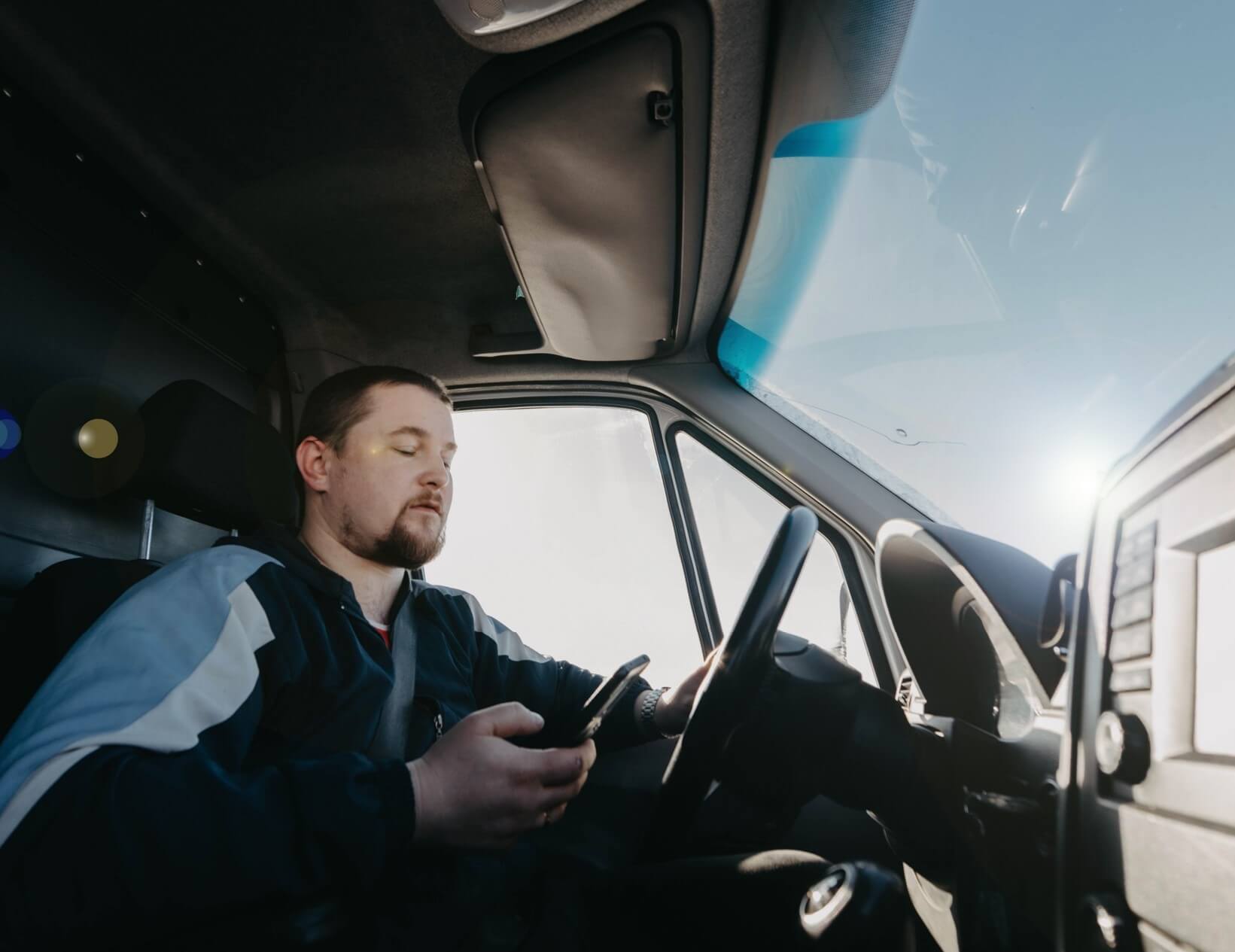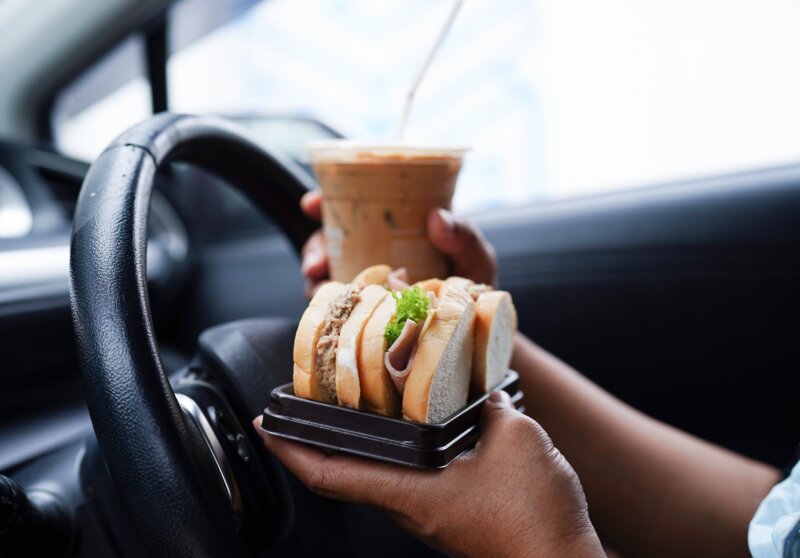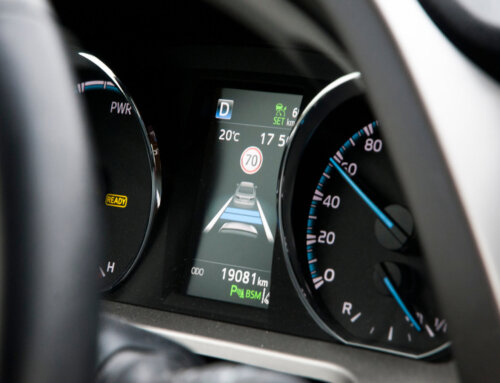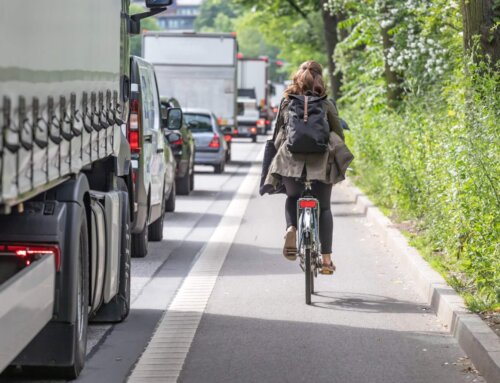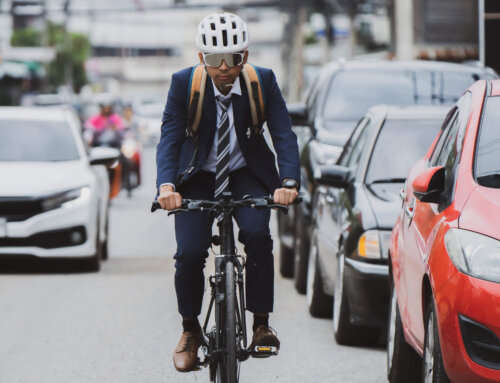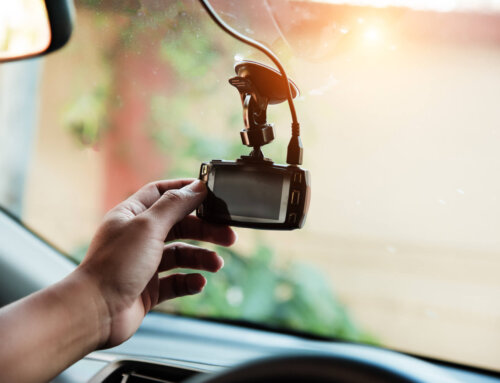As we head towards the busy Christmas period and start planning visits to friends far and wide, now seems as good a time as any to look at the impact of driver distraction on road safety in the UK.
According to distracted driving statistics provided by the Royal Society for the Prevention of Accidents, it’s a significant issue. The Department for Transport indicated that in 2022, driver distraction contributed to 2,616 road traffic accidents, 76 of which were fatal.
According to data collated by the Department for Transport (DfT), there are 50,000 instances of illegal phone use whilst driving every day in the UK. It’s not the only distraction that could cause drivers to be involved in road accidents, either!
‘Distracted driving’ is classified as one of the ‘Fatal 5’ – the five leading causes of fatal road traffic accident collisions.
But do we take ‘distracted driving’ seriously enough? Should it not carry the same kind of stigma as driving whilst under the influence of alcohol or drugs?
What is driver distraction?
Driver distraction is when a driver pays attention to something other than the road while behind the wheel. Examples could include reading a map, listening to loud music, or refereeing between squabbling children in the back seats of your vehicle!
The upshot of any distraction is that drivers attention levels drop, they become less observant, and they fail to anticipate hazards as effectively as they would if their minds were focused wholly on driving.
Using a mobile phone, sat nav, tablet or any appliance that can send or receive data whilst driving a motor vehicle or riding a motorbike is illegal. Motorists who do so and get stopped by the police can be prosecuted, receiving a fine of £200 and six penalty points on their licence.
In addition, according to the Highway Code, Rule 160, drivers must drive with both hands on the wheel, as much as possible, to remain in complete control of their vehicle. This rule is backed by legislation, and if prosecuted, an offender can be fined up to £1000 and receive 3 points on their licence.
A driver who gets distracted and causes an accident in which another road user suffers personal injury could get sued by the injured person in a road traffic accident claim: a civil claim for personal injury compensation.
What are the most common causes of driver distraction?
Mobile phones
Few will be surprised that mobile phones are a significant source of distraction for drivers. Almost 50% of drivers admit to using their phones while driving, although most claim they do so through hands-free methods. Male drivers and those aged between 17 and 29 are far more likely to use their phones while driving than females and those aged 60 or over.
According to the government’s road safety campaign, THINK!, driver reaction times are ‘two times’ slower when they text or use a phone hands-free while driving.
Reaction times decrease to ‘three times slower’ when using a handheld phone.
When behind the wheel, the slightest lapse in concentration can result in catastrophic consequences. All the more reason to take heed of THINK! ‘s advice:
‘Hands on the wheel? Hands off your phone!’
Eating and drinking
According to the AA, more than half of all drivers won’t think twice about tucking into their favourite snacks and drinks while driving.
Whilst it can be tempting to perk yourself up on a long drive with a chocolate fix and a hot cup of coffee, it’s perhaps best to wait until you’ve pulled over before you indulge!
Spilling hot drinks on your lap, scrambling to wipe off the ketchup that’s dropped on your white shirt before it stains, and reaching down for the morsels you’ve dropped on the floor are all potential recipes for disaster when you’re driving.
Passengers
Getting into a heated argument with your passengers is a surefire way to lose concentration behind the wheel, but even just chatting with them can be a significant distraction.
According to an article on the Insure The Box website, teenage drivers are six times likelier to have a serious car accident when there is a loud conversation going on in the vehicle.
Tiredness
When the AA surveyed drivers to understand their driving habits, two-thirds admitted to driving while tired. The road safety charity Brake says getting behind the wheel when you’ve had too little sleep can be as dangerous as driving while drunk, a claim backed up by a study that likened the effects of tiredness to those of having too much alcohol.
Technology
Gone are the days of battling with oversized paper road maps to reach your destination. Nowadays, almost all cars come with in-built satnavs, failing which most phones have GPS technology to guide you to where you need to be.
However, the temptation to fiddle with the technology or take your eyes off the road for a split second or two to see where you are on the map are risky sources of distraction for a lot of drivers – even though they won’t admit it!
External distractions
What’s happening outside your vehicle can be just as distracting as the goings-on inside it. Interactive billboards, road collisions, and even ‘people watching’ or daydreaming can all cause drivers to divert their eyes from the road and increase the risk of accidents.
Over holidays such as Christmas and New Year, when houses are adorned with eye-catching decorations and revellers take to the streets to celebrate, the number of external distractions increases and, with it, the risk of road traffic accidents.
How can you reduce the risk of distractions when you’re driving?
Many drivers don’t realise they’re distracted until it’s too late and they’ve already caused an accident. You can lower your risk of an accident by thinking ahead and taking proactive steps to reduce the likelihood of becoming distracted.
Examples of just some of the measures you can take include:
- Working out your route and programming your satnav before you set off
- Putting your phone out of reach so you don’t get tempted to read messages or answer calls. Better still, preset your phone to auto-reply to messages or calls telling the person who called you that you are driving, and you’ll get back to them when you reach your destination.
- Setting up your playlist or audiobook before you leave and not having it on too loud
- Eating before you leave or pulling over if you get hungry or thirsty on route
- Ensuring your children are appropriately strapped in and have all they need before you head off
- Not driving if you’re tired, angry, or upset.
Remember, nothing is worth risking an accident for.
Your child might scream that they need that book they’ve dropped immediately, but they don’t.
Your boss can wait for a reply to their email until you arrive at your destination.
Even urgent calls and messages can wait until you can pull over, so concentrate on the road, look for a suitable place to park and then you can deal with your calls and messages safely.
A car is potentially a dangerous weapon
The majority of drivers wouldn’t get into a motor vehicle and drive it whilst under the influence of alcohol or drugs. It’s become a taboo. Despite this, some still do, and if they are stopped by the police and convicted of drink or drug driving, they rightly pay a severe penalty for doing so.
Drink or drug drivers who cause road traffic accidents whilst impaired and seriously injure or, worse still, kill other road users are likely to receive prison sentences. Few would dispute that they get what they deserve.
Yet many motorists still get in their vehicles and allow themselves to get distracted – by their phones, satnavs, passengers or as a result of too little sleep. For some reason, getting distracted whilst driving a vehicle at anything from 25mph to 80mph or more isn’t generally viewed in the same way that driving whilst intoxicated is.
The words in the heading of this final paragraph are those uttered by a Court of Appeal Judge in the case of Lunt V Khelifa (2002) EWCA 801 (Civ) when he said that courts have:
“… consistently imposed on the drivers of cars a high burden to reflect the fact that a car is potentially a dangerous weapon.”
Perhaps therein lies the crux of the matter. When driving a car, we carry a heavy burden not to harm other road users. A poorly driven car is a potentially dangerous weapon; perhaps we need to remind ourselves of that every time we get into our cars!
If you’ve been injured in a road traffic accident caused by driver distraction, call Mooneerams Solicitors now on 029 2199 1927. In most cases, to bring a valid claim, the accident must have taken place within the last 3 years.
Your call will be taken by one of our friendly personal injury team members, who will quickly be able to advise whether you have a potentially valid claim to pursue.
Alternatively, fill in our ‘quick claim form’ or email us at enquiries@mooneerams.com, and we’ll get straight back to you.
Posted in Road Traffic Accidents

